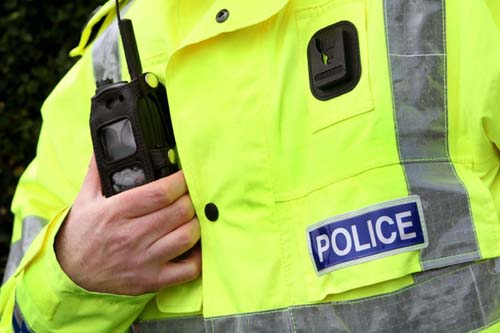POLICE officers from a Scots force made 3,000 phone calls over the past three years – to the speaking clock.
Lothian and Borders Police spent 31p a call just to find out the time, despite having access to some of the most sophisticated intelligence and investigative resources in the UK.
The bill of almost £1,000 was not the only spending on dubious calls since 2009.

A further £8,800 was spent by officers calling directory enquiries, despite being able to log in to the Police National Computer database.
About £5,000-worth of the calls were made from police landlines and the rest from mobiles.
The revelation is likely to cause red faces inside police HQ at Fettes, Edinburgh, which looks on to famous clock tower of Fettes College.
Officers have been told to have a working watch on them at all times and a list of the cheapest directory enquiry numbers has been compiled.
The head of Lothian and Borders Police Board, Ian Whyte, admitted he was “concerned” by officers dialling the speaking clock.
He said: “You would hope – given the adage “if you want to know the time, ask a policeman” – officers would have watches and that they are fairly accurately set at the start of their shift.
“Occasionally that will be needed, but most offices will have a clock on the wall and over time, it would be cheaper.
He added: “I appreciate that in some cases officers may need to get a number urgently and using directory inquiries might be the quickest way to do that.
“I would hope officers are sensitive to the cost of the service and perhaps the force should give them some guidelines on which is the most accurate and cheapest service.”
The Speaking Clock, also known as Timeline, still receives over 30 million calls each year and costs 31p to call.
Calls to the service can be made by dialling 123.
It was first introduced inLondonin 1936 and cost just 1p for the service.
And the police force are not the only ones guilty for using the service, as last year council staff spent more than £24,000 on dialling 1243 and other costly directory inquiry numbers.
Police chiefs insisted that the 123 service is sometimes used to make sure that their systems are on the correct time.
A police spokesman added that directory enquiry lines are also needed occasionally.
He said: “During operational duties, members of the force may require a telephone number urgently but do not have immediate access to a computer terminal. In those instances, they will utilise directory inquiries.
“Lothian and Borders Police is committed to responsible expenditure and the Telephony Unit has worked diligently to ensure any calls made to these services are done at the cheapest rate available.”